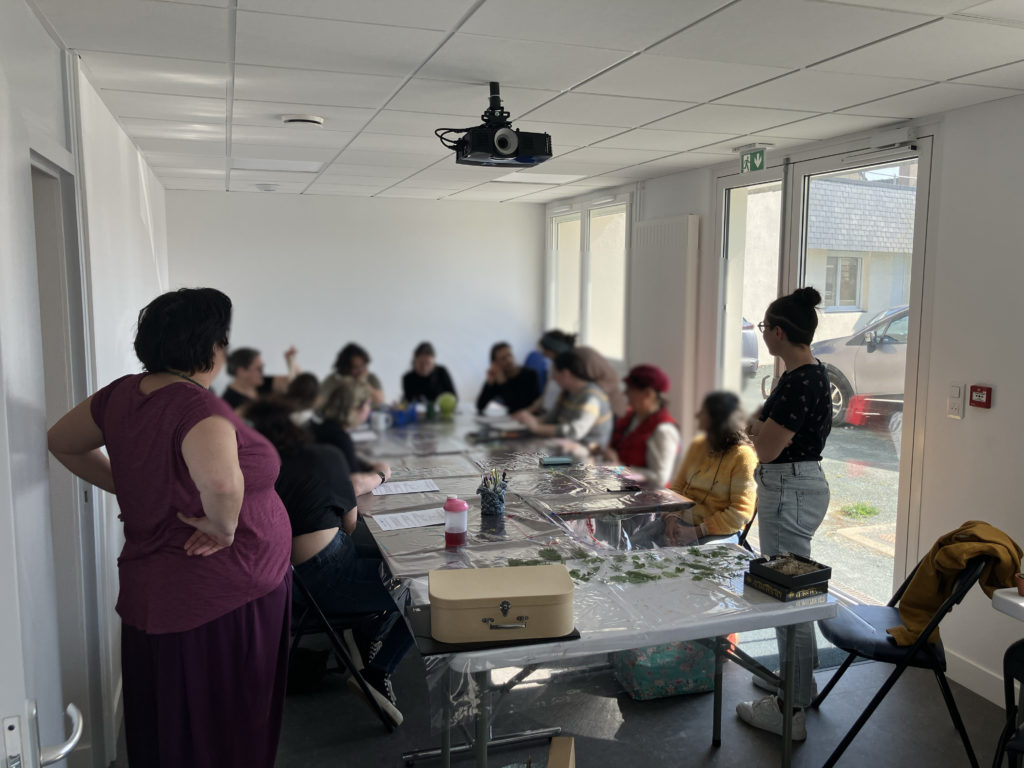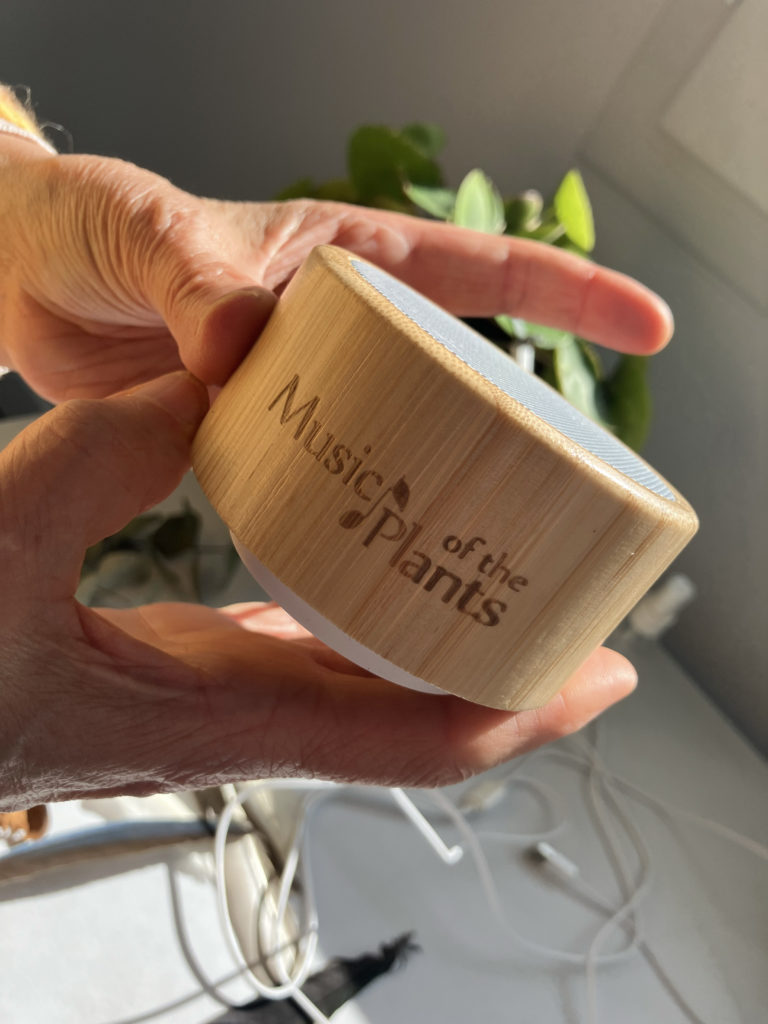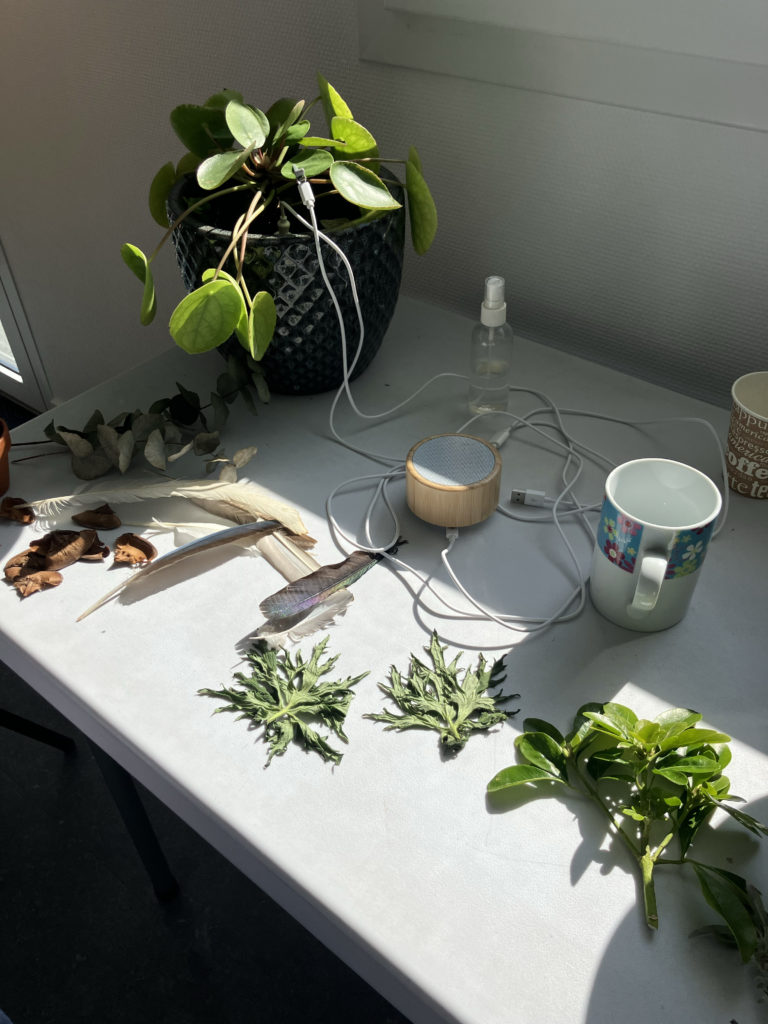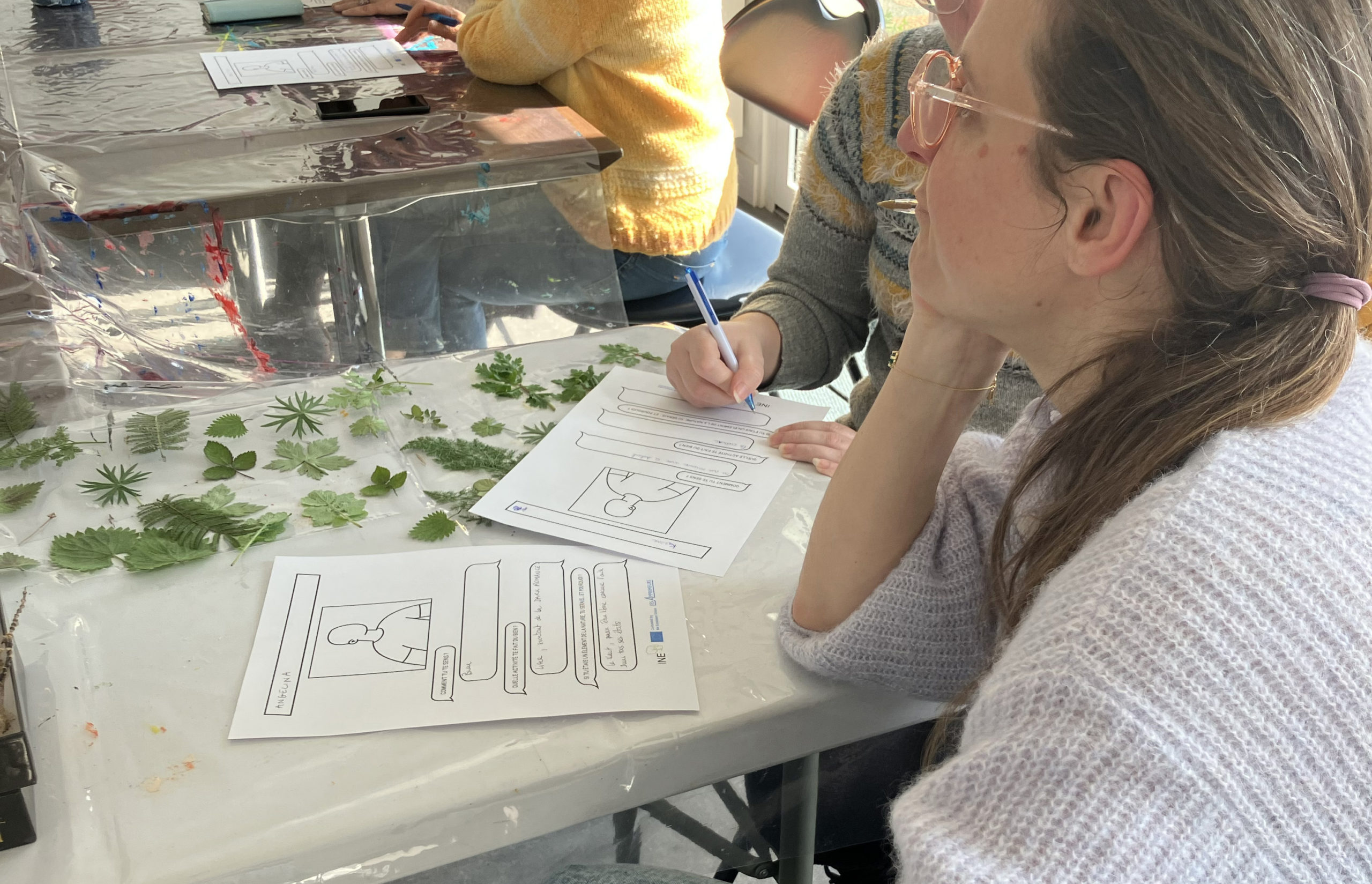As part of the European Inclusive Nature Experience (INE) project, our team carried out four focus groups with a rich exchange of views to feed into two areas of the project: the design of the training curriculum and the development of a collection of inclusive ebooks dedicated to well-being through nature.
These workshops were conducted in partnership with UFCV Pornichet and UFCV Pontchâteau between February and March 2025. They brought together social workers, people in precarious situations or with disabilities, support professionals and mediators. Here’s what we’ve learned from them.

Nature, mental health and inclusion: a strong but still fragile link
The first two focus groups enabled us to gain a better understanding of how the most vulnerable members of the public perceive nature and what they expect from training that promotes inclusion through contact with natural areas. For many people, nature is a place of refuge: a place where they can recharge their batteries, reconnect with themselves, and even heal. But this relationship is ambivalent. While nature is perceived as soothing, it is also difficult to access for those suffering from mental disorders, disabilities or precariousness.
The mediators and social workers expressed a need for tools to make nature more accessible and meaningful to the young people they work with. As for the adults supported by the social structures, their accounts show the importance of offering simple, sensory and ritualised activities – such as gardening or guided walks – to overcome the fear of going outside or the feeling of illegitimacy in using these spaces.
Sensory ebooks that are inclusive and rooted in everyday life
The aim of the next two focus groups was to explore participants’ expectations of a little-known format: the ebook. Although they were not familiar with digital reading, their curiosity was aroused when it came to co-creating a multimedia medium combining plant sounds, images and stories rooted in nature.
The vast majority of participants live in rural areas and have a very personal relationship with nature, often tinged with poetry. The use of sensory devices (listening to plant frequencies, manipulating plants) has reinforced their desire to create digital objects rooted in reality, in emotion, and in their own experience. Their preference is for short, intuitive, visual and sound formats, organised by season or by sensation: “what we see”, “what we hear”, “what we feel”.


Concrete ideas for the design of future INE tools
The participants really liked the idea of cards offering ideas for outdoor activities and practical recommendations. These cards should be simple, clear and contain concrete proposals that can be implemented without complicated preparation. They could include ideas for short activities for days when energy or desire is lacking, as well as suggestions for people who want to make a long-term commitment.
The social workers expressed the need for flexible, practical training that could be immediately applied in their day-to-day practice. They would like to have easy-to-use tools to help their beneficiaries get more out of nature outings.
Digital books don’t seem to be a common tool for them, but the idea of knowing how to create one is of great interest to them. They would like to learn how to create a multimedia book, combining photos, sounds and text to illustrate a walk or an activity in nature. This could become a medium for their audience.
Finally, participants would like to see activities that are suitable for both indoor and outdoor use. When it is difficult to go outside, it would be useful to have indoor alternatives to maintain a link with nature (artistic creation, sensory discovery, immersive projection, indoor gardening, etc.).
More in a few months!
In the meantime, to find out more, visit the project website: ine-project.eu

